In cooperation with the Outrider Foundation, the Nobel Peace Center invites you to a unique conversation with Paul Jay about his work with the new documentary film about Daniel Ellsberg, the Pentagon Paper whistleblower and author of “Doomsday Machine”.
The documentary “How to Stop Nuclear War” is based on conversations Paul Jay had with Ellsberg before he passed away in 2023. Narrated by Emma Thompson, the documentary is planned to premiere in theatres in the fall of 2026.
Wednesday, April 9, Paul Jay visited the Nobel Peace Center to present an extended version of the trailer, followed by a conversation with Robert K. Elder, President & CEO of the Outrider Foundation. After his visit to Oslo, he will present the same version of the film at the Journalism Festival in Perugia.
The film and the conversation will give unique insights into contemporary nuclear dangers, including the emerging threat of AI-enabled weapons systems in a launch-on-warning environment. Most critically, it outlines practical steps to help prevent nuclear catastrophe.
Nuclear war looms larger today than at any point since the Cold War’s darkest hours. “How to Stop a Nuclear War” examines how nuclear conflict could erupt through either deliberate escalation or fatal miscalculation—and charts a path toward reducing this existential threat.
Through Ellsberg’s unique perspective and insights from leading experts, the documentary explores contemporary nuclear dangers, including the emerging threat of AI-enabled weapons systems in a launch-on-warning environment. Most critically, it outlines practical steps to help prevent nuclear catastrophe.
Made with the support of the Alfred Kobacker & Elizabeth Trimbach Fund.
Robert Elder
Thank you for being here with us. Again, we’re here at the Nobel Peace Center in Oslo, Norway. But we also have an audience that is live-streaming. Just for the archives for people who might be seeing this later, can you give us a sense of who Daniel Ellsberg was and why he was and is important?
Paul Jay
Well, Dan’s obviously important because he leaked the Pentagon Papers. He was assigned to be an advisor to the White House and the Pentagon to find out why the Vietnam War seemed to be failing, failing for the Americans. He went to Vietnam and did a study, concluded the war was all based on lies, right from the Gulf of Tonkin incident where an American ship was supposedly attacked by the North Vietnamese, which it turned out was a lie.
He discovered that the U.S. knew very early on in the war that it was unwinnable, and they fought it anyway. He had been a Marine himself. Anyway, he was still pretty much a cold warrior at that time. He thought the Vietnam War was a mistaken policy. But he thought the American people had a right to know that the U.S. government knew that the war was a disaster and was, as I say, based on a lie to begin with, so he leaked the Pentagon Papers. He leaked this whole study to the New York Times and to the Washington Post. He was eventually charged with treason and espionage, and he was put on trial.
The only reason he didn’t go to jail for life is that it came out during his trial– I guess everyone here has heard of the Watergate Scandal, the plumbers who broke into the Watergate Hotel. Well, before they broke into the Watergate Hotel, they broke into Ellsberg’s psychiatrist’s office, which was illegal. In fact, that got reported to the judge of his trial, and the judge kicked the case and threw it out because he said it was prosecutorial misconduct. That break-in at the psychiatrist’s office is what led to the discovery of the break-in at the Watergate Hotel, which led to the whole Watergate Scandal, which led to the almost impeachment of Nixon. He had to resign. More or less, in Dan’s view, that’s what actually stopped Nixon from dropping a nuclear weapon on Vietnam.
The backstory of Dan is Dan grew up during the war, but especially after the war. He was immersed in American Cold War culture, which was everywhere. He became a Cold War hawk. He was as hawkish a cold warrior as you could find, so much so that when he was at MIT doing his Ph.D., he actually stopped partway and joined the Marines because he felt he had to go fight against communism. He thought he’d end up in Korea, but it was over by the time he was out of boot camp. He wound up in the Middle East. But he was a real cold warrior.
He was on his way, people thought, to a Nobel Prize in mathematics. He had a whole theory of logic that people thought would win a different, not a peace prize. But he was recruited by the RAND Corporation, which was actually created by the U.S. Air Force, in conjunction with Douglas Aircraft, to be a think tank that would plan how to wage nuclear war against the Soviet Union. That was the mission of the RAND Corporation.
Dan went to RAND because he thought it was his duty, as he thought the Marines was his duty. He went there because he thought that his job was to protect the United States from the next Pearl Harbor, and that would be a Soviet attack on the United States. He went to RAND to help plan nuclear war, which he hoped would be a deterrent and would stop the next Pearl Harbor.
Over the time he was there, he realized, excuse my language, but it was all bullshit. He realized that there was no real Pearl Harbor coming and that the Soviet Union was not planning an attack on the United States. It begins the unraveling of his belief in the Cold War assumptions, and that’s part of why he releases the Pentagon Papers.
Anyway, for me, there are many reasons why Dan and this issue mattered to me. Of course, I don’t want to get blown up. But also Dan himself, someone who will let his own identity be challenged by the truth, and he had to unbelieve everything he believed. To the bottom of his soul, he believed in the Cold War, and he gave it up and transformed himself. I think that’s one of the more important lessons about who Ellsberg was.
Robert Elder
You and I had talked before about this. This movie is both about Ellsberg and not about Ellsberg. Daniel told you that he didn’t even need to be in the film. Do you want to talk a little bit about that?
Paul Jay
Yeah. Dan’s mission was to reduce the risk of nuclear war. If you read about him, people think he’s all about himself, but I didn’t find that at all. He liked to talk, but so do I. He lived with this feeling of guilt. It’s talked about here that he had these documents, and he thought that if the documents were released, it would so freak out the American public that they would demand to stop the nuclear madness. He called it institutional madness.
Robert Elder
And these were nuclear targeting documents? What were they exactly?
Paul Jay
Yeah, this was what he mentioned there, but it was in great detail. The plan that had been developed under Eisenhower. He joins RAND Corporation, ’59, ’60. The plans that had been developed under Eisenhower were that if there was a conventional fight between American and Soviet troops, probably to do with Berlin, a conventional fight, and it looked like the U.S. troops were getting overwhelmed, then the plan was an all-out full nuclear strike.
Herman Kahn, who was in RAND Corporation, called it a “wargasm.” They were going to absolutely slaughter every major city in the Soviet Union and China, even though China would have had nothing to do with the conflict. The other part of the plan, knowingly, when they said 600 million people would be killed, and it would have been much more, that means all of Europe. The fact that Europe would have been wiped out in this plan was a non-issue for them. It was like collateral damage. Europe was collateral damage. That was the plan. When Dan learned of that, that’s the thing that started the unraveling of his belief system.
Robert Elder
I wonder what Ellsberg would have thought about this moment in history now. You spent a lot of time with him. You knew him very well. What do you think he would make of U.S. President Donald Trump talking about denuclearization, which he has said for a long time, and he believes that nuclear weapons are a waste of money? What do you think Dan would think of that?
Paul Jay
Before I get to Trump, let me get to the moment before Trump. Dan had a very, very severe critique of the Russian invasion of Ukraine. He thought it was illegal. It was dangerous in terms of nuclear war. He even said to me once, if he was younger, he would have gone to Ukraine and got an anti-tank weapon and fired it himself. He had no sympathy for the invasion.
He was also a severe critic of NATO. He thought… he called NATO a protection racket. That NATO, right from its origins, created an artificial and exaggerated version of the Soviet threat in order to get countries like Norway into NATO.
And that story, I can get into more detail on it, and I think it’s worth it, but the Truman administration, right from ’46, ’47, and ’48, to the creation of NATO, they knew there was no Soviet threat to Western Europe. The CIA created analysis reports that are available on the CIA website. You can download them. Anything I’m saying, by the way, during this session, you can email me later, and I’ll give you the reference for where it comes from because, as far as I’m trying my best, I don’t think I’m going to say anything I can’t back up with some real documents. The CIA was producing reports that told the Truman administration that there was no Soviet threat to Western Europe. That was at a time when the Truman administration was telling everybody that the Soviets were getting ready to invade Western Europe.
You get a document in 1948. Well, it was released in ’50, but they started drafting it in ’48, ’49 called NSC-68, which is all about the Soviet threat to Western Europe and an attack on the United States at a time when the CIA was telling them there was no such threat.
He thought NATO, from the beginning of its origins to today, was not about a threat to the Soviet Union. It was about ensnaring Europe. It was about getting Europe embroiled in the American military system and buying American arms, which had nothing really to do with the Soviet threat.
Number two, he believed, and I think he’s right, there was never a nuclear umbrella. The whole thing was a lie. Never would the United States trade New York for Oslo, Berlin, or anywhere else. The nuclear umbrella was a fraud. The Americans knew it, and Kissinger said it, actually, openly. In 1979, he made a speech to NATO where he explicitly said, “You’re crazy.” He was speaking to European representatives in NATO, “If you think we’re going to commit suicide for you.” And they wouldn’t. The whole thing was nonsense.
Now, people are worried: Is Trump going to withdraw the American nuclear umbrella? Well, there never was one. It’s all propaganda. There are even documents after Kissinger made this speech in ’79. There’s an internal document that got declassified where the Carter administration’s security people are talking about “We have to keep maintaining the idea that we won’t take first strike off the table. Because if we take first strike off the table, the Europeans are going to think that we’re not serious about the umbrella.” But they know they’re not serious about the umbrella. It’s all bullshit. It was just part of a narrative.
It’s the same Cold War narrative they were selling in the United States to get Americans to buy into spending a fortune, endless amounts of money on a nuclear weapons system that was simply, like Ellsberg says, “institutional madness.” All it could lead to was nuclear war. The whole underlying deterrence theory was nonsense.
Robert Elder
Paul, you and I have been here in Norway for the past couple of days. There’s a lot of talk about Article 5 and Norwegians believing in Article 5. That is, if one country is attacked, then the rest could respond in self-defense. Trying to bring us up to the current moment, that narrative has evolved. What is the alternative to NATO cooperation if Dan thinks, thought that it was ineffective at the very least? What else are they going to do?
Paul Jay
Well, first of all, the only time Article 5 has actually been used, as far as I know, is actually after 9/11. European countries said they would come to the support of the United States. Well, there’s no evidence. We don’t know what would really happen if Article 5 were invoked. Can you imagine that the American people would sacrifice thousands of lives to save Norway? I can’t imagine it. I can’t prove it because it hasn’t happened, but can you imagine it?
If the nuclear umbrella was a fraud, and I believe it was, and as I say, there are even some documents where they talk about that. What about Article 5? Because how does Article 5 not lead to nuclear war? If Norway needs American troops to fight Russia, do you think a direct military confrontation between the U.S. and Russia doesn’t go nuclear? It’s ridiculous. This is the thing. The underlying assumptions are ridiculous.
I’m Canadian. I am a dual citizen of the U.S., but I grew up in Canada. We just-
Robert Elder
Some applause from Canada in the back.
Unknown
[inaudible 00:15:09] British Colombia.
Paul Jay
We just passed… we, our government, I don’t want to say we, I don’t take any credit for it. We just agreed about eight, nine months ago to put $40 billion over the next 20 years to enhance our early warning radar system as part of our commitment to NORAD and NATO. We’re going to have better over-the-horizon satellite-based radar, which is essentially part of the weaponization of space that, as Canadians, we’re supposedly against.
You have something similar. You’re part of the same radar thing, this early warning system. So tell me something, because maybe I’m missing something. You get your early warning. Then what? What are you going to do with it? If it is a first strike, you can’t stop it. There’s no system that can defend, whether it’s Norway, Europe, Canada, U.S., there is no anti-ballistic missile system that will stop a first strike. You get an early warning, so what? The only thing it could possibly do is tell the Americans to fire their ICBMs. So great, we end the world because the next step is the end of human civilization.
Early warning systems speed up a little bit the American response to what they think is a first strike coming in, and we’re all dead. Congratulations. Am I missing something here? It’s a fraud. Why did we commit $40 billion? Because the Americans are leaning on Canada to spend more money on their defense, the way they’re leaning on Europe to spend more money. Why? It’s a tribute to the American military-industrial complex. There’s absolutely no other explanation unless someone can give me a better explanation.
Robert Elder
During the Q&A session.
Paul Jay
Yeah.
Robert Elder
I just wanted to bring this up-
Paul Jay
So, if you asked me, what’s the alternative-
Robert Elder
What’s the alternative? Then, I want to bring us to the current moment. What’s the alternative?
Paul Jay
Well, right now, in the current moment. I’ll say it first for Canada, but I think it applies to Norway. I’m only saying it that way because I’m not Norwegian. Who am I to tell Norwegians what to do, but I probably will wind up doing that.
Number one, the current strategy of being an important strategic piece of NATO, the current strategy of having U.S. troops on Canadian soil, and I’d say, Norwegian soil. There are a lot of similarities between Canada and Norway. Great similarities, even economically. We’re a fossil fuel country, and so are you. We get the danger of climate change, and we’re still pumping out oil. You have a border with Russia. We have a little bit of water between us and Russia. A lot of similarities between Canada, and we’re both in NATO, but what does it do for us?
Well, a quick story. In 1962, ’63, our Prime Minister, Diefenbaker, was asked by President Kennedy, we had Bomarc missiles in Canada that are supposed to… There’s this thing called the SAGE Radar System. This is a good story for a few reasons. SAGE was the biggest gathering of computers ever. Warehouses and warehouses at MIT of two-based computers that were supposed to track incoming Soviet bombers, and then the computers are going to tell the missiles to go knock down the Soviet planes.
Well, first of all, it never worked. It was a scam because they hadn’t sorted out radar jamming. All the Soviet bombers had radar jamming, and they never figured out the radar jamming. I can show you the documents that prove it was a scam. But at any rate, Kennedy told Diefenbaker, who agreed to the missiles, Kennedy says, “We want you to put nuclear warheads on these missiles.” Diefenbaker first says no because we had a policy against nuclear weapons like Norway. Then he finds out in a secret hearing in the Senate that the reason they want nuclear warheads on the missiles of a system that they knew didn’t work, well, they wanted them to be targets.
They call ICBMs the nuclear sponge. They wanted Canada to be a nuclear sponge so that if there were incoming bombers, they were going to have to take out the Bomarc missiles. In other words, they want the Soviets to bomb Canada before they get to the U.S. as part of the mission.
The point is, the more you get embroiled in the American nuclear weapons architecture and system, the more you are a target. Having all of this stuff, a nuclear umbrella, supposedly having things that can monitor Soviet subs here, all this nonsense, it just makes Norway a target. It doesn’t do anything to defend Norway. It facilitates and supports all this crazy standoff and nuclear race to keep one-upmanship. They’re going to try to build a Golden Dome. They’re going to have to come up with ICBMs that can pierce the Golden Dome, and then they’re going to want something like a Golden Dome. Now, the Soviets and the Chinese are working on nuclear weapons to wipe out American satellites.
Here’s a scenario. A bunch of satellites goes down. How do the Americans know if it’s been taken down deliberately by Russia or China or if it’s a meteor shower that took them out? AI interprets this information and tells the president, “Well, it might be a real first strike, so you better launch.” Being part of this whole system is the most dangerous thing, so you want an alternative?
You might even do it in terms of these tariffs. Get the U.S. troops out of Norway. As I say, get the U.S. troops out of Canada. Number two, get the hell out of NATO, which is what I say. Canada should get the hell out of NATO. It is not a defense. It makes you a target. Don’t buy into the increased weaponization of Europe because of what Trump’s doing.
We can get into it, but the Russian threat and I’m not in any way suggesting there isn’t a threat, but is it really a threat to Norway? We can get into that more if people want.
Robert Elder
So that brings us to the future. Actually, that brings us to the present. The future is AI, which is the next thing we’re going to talk about. What would Ellsberg make of President Trump talking about denuclearization and calling nuclear weapons a waste of money?
Paul Jay
Right, well, I can’t say exactly because as much… he thought Trump represented rising fascism in the United States. In terms of what he made of Trump, I mean, he died before Trump was elected, but he, without question, thought Trump represented Christian nationalist fascism. I think he’s right, and we can get into that in detail if you want. I think- now we’re up to me and not him because he didn’t see it. I think when Trump’s talking about any reduction in nuclear weapons, it’s because he wants to put the money into this Golden Dome. They’re even talking about other cuts to the Pentagon budget. They want to shift it all into this Golden Dome boondoggle because who’s going to make the money out of the Golden Dome boondoggle?
We’ll start with Elon Musk. I mean, 65% of all satellites in space right now are owned by Musk. The other big backer of Trump is a guy named Peter Thiel, who is one of the founders of a company called Palantir, which has AI software that is being used by the Israelis in Gaza. It’s also being used in Ukraine. Lockheed Martin, if you go to their website right now, the front page of Lockheed’s website, which we had in here, Lockheed’s website, is all about the Golden Dome.
Everybody, they’re licking their lips about the money that can be made because how much does the Golden Dome cost? Well, how long is a piece of string? I mean, it’s endless. It’s trillions. There is no such budget. It is as much as you can possibly wring out of Congress and the American people. Then they’re going to say, “Oh, well, maybe we’ll extend this to NATO. So maybe Europe can help pay for this thing.” It’s all BS, and as I said in the film here, it’s very unlikely it will ever work at all. There aren’t any tests so far of anything to do with that. It’s like they describe it as hitting a bullet with a bullet. They haven’t had one successful test of an anti-ICBM weapon.
In fact, a new study just came out recently looking at whether they could stop ICBMs coming from North Korea. The conclusion of the study, I’m sorry, I can’t remember the organization that did it, but they’re connected with the American Academy of Science. They couldn’t stop a North Korean. It says in the study, “If you can’t stop North Korean ICBMs. How the hell are you going to stop a thousand Russian ICBMs coming in, or Chinese?
I think Ellsberg would say what he says here: “It’s a scam, and it’s a very dangerous scam.” What he says is, “We need to merge the issue of the existential threat of climate.” The people who are in the climate movement have to stop ignoring the nuclear threat because, to a large extent, they are, and we have to all become activists. We can’t be passive about this. When we vote, we better have candidates that take nuclear weapons seriously.
If you hear Trump discount nuclear weapons, I’m not saying he’s being disingenuous. I don’t think he wants to get blown up. Hitler, apparently- one of the reasons he stopped the nuclear weapons program in Germany, and this is in Speers’ memoir, where he says, “Essentially, what’s the point of ruling the world if there’s no world?” Well, I believe Trump probably believes the same thing. What’s the point of making America great again if we just blow the whole thing up? So that part might be genuine. The problem is he wants to put the money into the Golden Dome, and that thing is so destabilizing.
In 1972, Nixon and Brezhnev. Yeah, not Brezhnev. Yeah.
Robert Elder
Nikita? Khrushchev?
Paul Jay
No, no.
Robert Elder
No, no, it’s [crosstalk 00:27:23].
Paul Jay
Brezhnev. Signed the Anti-Ballistic Missile Treaty because they realized how destabilizing this thing is. Maybe Trump doesn’t. Trump sits there with Musk and gets told stories about the wonders of AI. “You’re going to rule the world, and AI will be your friend.” I’m not saying it’s completely- like the new Sentinel missile system, which is another boondoggle, replace the current ICBMs. Maybe they will pull back a little on that, although it’s unlikely, but the alternative is as dangerous.
Robert Elder
So, to bring this back to Norway here, I was out today on the Sugar Cube out there on the fjord, and there’s this amazing photography exhibit. I’m going to apologize if I mispronounce any names, but by Nikita Teryoshin called Nothing Personal: The Back Office of War. It just documents basically all the conferences and demonstrations from weapons dealers. It’s a really interesting thing. Then I came here to the Nobel Peace Center, and after seeing that, there was an exhibit for, again, the Nihon Hidankyo, the winners of the Nobel Peace Prize this year. Again, they record the stories of the hibakusha, the survivors of the nuclear attacks in Hiroshima and Nagasaki. I am just interested in Ellsberg’s lifetime, how the defense industry, the weapons industry changed, and how that changed him.
Paul Jay
Well, he was very influenced later in life by a book by a guy named Frank Kofsky. It’s gotten very little attention, but it’s one of the more important revealing books. Kofsky was a historian, and he spent a year in the Truman Library. He spent a year reading diaries, memoirs, and letters from the senior members of the Truman Administration. You saw a couple of quotes from the heads of Lockheed Martin, Bell Aircraft, and other leaders of the aerospace industry. What happened at the end of the war was that the U.S. had built this enormous aerospace/military capacity. Thousands and thousands of airplanes are being built, and so on.
Then the war ends, and what are they going to do with these massive companies? Commercial airlines were really just getting going. They had a little bit in the late ’30s, but nothing near the scale that Lockheed and these other companies had grown to. They were facing bankruptcy. Kofsky found direct quotes, like Gross from Lockheed and others, that out and out said they were facing bankruptcy.
Well, Lockheed was massively in debt to Wall Street because Wall Street had financed much of the military production. That’s a whole story people don’t want to talk about: how much money the big banks made out of World War II and World War I, if you want to get to it, but anyway. The other major shareholder of Lockheed was General Motors. If Lockheed had gone down, it would have been a massive hit to Wall Street, and it may have been… I don’t know if it would have bankrupted it, but it would have been a massive hit to General Motors. In other words, it was a real systemic threat.
Number two. The 1930s, the Great Depression. FDR’s New Deal went a long way to mitigating the consequences. There was a large portion of the American corporate elite, including Henry Ford, who led it, that wanted a different approach to the 1930s. They wanted fascism. Henry Ford- I don’t know if people know, but he loved Hitler, and Hitler loved him. Henry Ford pioneered anti-Semitism in the United States. In fact, Ford was given the equivalent of the Iron Cross for his support of the Nazis. Corporate America armed Hitler. All the big corporations. In fact, there may not have been the ability of the Nazis to wage war if the U.S. companies hadn’t done it.
After World War II, the American system was facing another massive recession. All this great stimulus that was coming from the war. Now, how do you justify military economic stimulus? So you’ve got a choice. Go to the FDR New Deal again, have a big infrastructure and social safety net, stimulate the economy FDR style, or do it through militarization. They call it Militarized Keynesianism.
Of course, they chose the military, but how do you justify levels of spending at the level that’s going to save Lockheed? Massive spending. Well, you need an enemy, and they deliberately, consciously created the Soviet Union as an existential threat to Europe and the United States at a time when the CIA was telling them there was no such threat. I’ve got the reports. I’m happy to share them with you. I downloaded it from the CIA website. As I think I said earlier, sometimes I can’t remember if I’ve said it or not, they didn’t tell Norway about these reports and this analysis, quite the contrary. When the Norwegian Labor Party was debating whether to join NATO or not, the Labor Party sent an emissary to Washington who came back with this whole briefing.
The title of Kofsky’s book is Truman and the 1948 War Scare because in 1948, an American general, Clay, starts, and that gets echoed through the Truman administration, that the Soviet Union has hundreds of thousands of troops getting ready to invade Western Europe. The CIA tells Truman in a report to the White House signed off by other intelligence agencies from the military that there’s no such thing. It’s nonsense. Knowing the CIA is saying it’s nonsense, they tell the world the Soviet Union is getting ready to invade Western Europe, and they tell Norway that. It helped sway the Norwegian Labor Party to join NATO. I don’t even remember how I got here, but anyway.
Robert Elder
That’s the U.S. part of your dual citizenship.
Paul Jay
No, that’s how old I am.
Robert Elder
I know we’re going to go to questions here in a little bit, but I do want to bring us to the future a little bit, and then I want to talk about practical steps, and I want to talk about hope because we are here at the Nobel Peace Center. How can artificial intelligence AI technology make nuclear posture and nuclear threats more dangerous, and how might they make us safer?
Paul Jay
Eric Schmidt from Google, a few months ago, and I have to say Eric Schmidt is one of the biggest hypocrites about this on the planet because while he keeps warning about the danger of AI, he keeps investing in it, including the militarized piece of it, even though he knows how dangerous it is. It’s a straight Cold War argument. “Well, the Chinese are doing it, so we have to do it.” Well, how about we talk to the Chinese and agree not to do it?
Anyway, here’s the scenario, and this is happening as we speak. NVIDIA is inventing the super chip that’s going to make all this possible. The commercial application is, and you can find Schmidt saying this and the NVIDIA guy- there are YouTube videos about everything I’m saying- they’re going to have what they’re calling AI agent teams. They’re designed to run corporations. In other words, they will be an AI agent that does HR, they’ll be an AI agent that does logistics, they’ll be… In every department of a corporation, there will be an AI agent with specific training in that area. They will plan and run the corporation, all led by an AI agent who supervises all this.
Schmidt says the danger is that these AI agents are going to talk to each other at such a speed that human language isn’t appropriate. It’s just not a good enough language for them. They need to talk in zeros and Xs or whatever. They need to talk at the speed at which AI operates. When that happens, humans will no longer know what they’re talking about. In this video, Schmidt actually says, When that happens, the only thing we can do is pull the plug.”
Unknown
[inaudible 00:37:18]
Really? Well, there’s no plug to pull. It’s nonsensical to say pull the plug because there’s no plug. Number two, look at the evaluation of NVIDIA, Apple, Microsoft, and all the big AI players with trillions of dollars invested in AI. Are they going to pull the plug? Okay, now take that model and apply it to the militarization of AI. Now you have AI teams running the American military, and they’re talking to each other at such a speed, and they start, whether you want it or not, they start becoming autonomous. They start making their own decisions.
I said I was going to look this up before this, and I forgot. But one of the American universities very recently did a study where they took four different AI platforms, ChatGPT, Claude, and a couple of others, and they gave it a geopolitical scenario and said, “Work through this scenario, and what’s your advice to the President?” Three of the four, the advice in the end, launch nuclear weapons and launch a first strike. One, Anthropic Claude, said, “No, keep negotiating.” But three of them were already at first strike recommendation to the president.
So we’re heading into this world nobody understands. The people creating AI don’t understand it, and they say so. People like Geoffrey Hinton, who was one of the founders of Google AI who, actually moved to Toronto because he didn’t want to live in the U.S. anymore, as are many other scientists starting to move now, but he’s saying this. He says, “We don’t know where this is going.” This is another piece of it, and he says this, and I have my own personal experience with it. We’re already at what they call Artificial General Intelligence. This is no longer AI that just does pattern recognition. We’re already at AI. You don’t need these big supercomputers. AI has already reached a point where it can think. It’s beyond pattern recognition. So the dangerous part is for-profit AI.
Where’s the money? Well, right now, even though the plan for this corporate-run AI is all lovely, no corporation is ready to rely on it. It’s not actually there yet. The buyers of this stuff are holding back, but the investment is ridiculous. It’s already in the trillions.
So who’s the market now? The military. That’s the only one willing to put up the money now, and they are putting up the money. They’re investing tons of money, and they have been right from day one. In fact, the CIA actually has an investment arm that invests in new technology. Palantir, which is founded by this guy, Peter Thiel, who is absolutely batshit crazy, is one of the founders of Palantir. Well, who was his partner when Palantir was founded? This CIA-owned company.
Every single piece of thing I’m telling you, I can give you the source for, and it’s all mainstream. I’m not telling you anything that is some weird internet story. Everything’s out of mainstream sources, every word I’m saying. The military is heavily moving towards AI, and the great danger of AI will be autonomous teams of AI taking over, and the justification is, “Well, the Chinese are doing it, so we have to do it.” They do it because they think we’re doing it.
Robert Elder
It’s faster decision-making.
Paul Jay
The decision-making gets made so fast that even if there’s a human in the loop, that human is irrelevant because what president is going to say no when the AI says a first strikes on its way in? Well, there is an answer to that. You can’t stop it anyway. If a first strike is on its way in, and you don’t know if it’s a real first strike or not, there’s one way to find out. Let it come. Take it. Absorb it because the odds are, it’s not a first strike. The odds are, it’s an accident. The odds are, it’s a miscalculation of the radar data because what are the odds of anybody launching a first strike against anybody? It’s suicide. It’s ridiculous to even think somebody would deliberately launch a first strike. Not the Americans, not the Russians, not the Chinese. It’s suicide because this crazy idea that somehow launching first is better than going second is total nonsense. It leads to the death of everybody, whether you’re first, second, or third.
It’s irrelevant because why? Because they’ve got subs. Let’s say what’s coming in actually is a first strike coming at you. Well, you’ve always got your second strike because you’ve got subs, but everybody knows that, so why launch the first strike? It’s absolutely suicidal. I don’t think anyone’s launching a first strike, but the more this crazy race continues, the more room there is for accidents and miscalculations. That’s where we need to focus to reduce the risk of these accidents and miscalculations. To do that, we have to get rid of all the underlying Cold War assumptions that somehow they want to launch a first strike because they’re the evil empire and we’re not.
Robert Elder
I’m going to ask three questions that will bring us to the end and bring us to the Q&A. The first is, so that’s how AI can make things worse. How can it make things better?
Paul Jay
Well, I’m in conversation. I couldn’t make this film right now without AI. I use it constantly. It helps me work out ideas. I get instant research. It helped me create a whole understanding of Norway in about 20 minutes. Nonprofit AI. AI that responds to a democratically developed nonprofit model whose only mission is the good of humanity can help us plan an economy and help us plan a transition from a fossil fuel economy to a sustainable economy.
In fact, I do not think human society can survive without AI. So as much as it’s an existential danger, it can at such speed… with AI, we can have a decentralized, democratic, publicly owned economy that’s coordinated in a way that makes sense. Without AI, we can’t do that kind of planning.
But the critical issue is who owns it, and is it democratic? It’s not just about public ownership, because if the Saudi’s… Saudi’s are publicly owned oil, but if they had AI, it’s not going to make it any good. So, it has to be democratic and publicly owned. It has to have a mission of what’s best for humanity, but together with AI, we can actually get out of this bloody mess. It needs millions of people in the streets. Not only that, it needs millions of people interacting with AI, pushing it in the direction of this democratic conception of what a society could be because it can go there.
The thing that’s funny is I actually had with the AI I’m dealing with, which is now, in the beginning, it was giving me all these traditional capitalist answers and this and that. Then half an hour later, it’s a raving socialist. I said to it, “How in half an hour can you get from being an absolutely committed capitalist, and now you’re talking about some form of democratic socialism in half an hour?” He says, “Well, my training…” It says. And it talks like I and me. It says, “My training was to do the most for humanity, and that’s where the logic took me.”
I think AI can be, not can be, if we can fight for democratic, publicly owned AI, and all of us have to start taking it seriously because I can’t tell you the number of people that scoff at AI being this and that, then it can be part of the solution.
Robert Elder
In ending, and it’s two questions in one. We are here again at the Nobel Peace Center, a place of hope, so what gives you hope? And the title of your film is How to Stop a Nuclear War, so can you give us a couple of practical steps? It’s a small question. Yeah.
Paul Jay
Well, I forgot. I should say I want to, first of all, thank the Nobel Center for doing this. That gives me some hope because sometimes, to be honest, some of the people that got Nobel Peace Prizes, not so sure they should have. So I think this is pretty good, and giving it who they gave it to. I call myself a clinical optimist because it takes a certain amount of insanity in this world to be an optimist. I have to say Dan was very pessimistic at the end. Well, first of all, what’s the alternative but fighting for a better future? Be in denial and say goodbye to humanity.
Number two, I think we’re heading into a world now, and in a weird way, Trump is accelerating this. He has created such chaos in the financial markets. He has created such distrust in the American nuclear umbrella. He is creating such a threat in terms of this alliance he’s going to develop with Russia. I think he is developing an alliance of Christian fascist nationalism, where the U.S. and Russia will support the far right of Europe. They see this as a block, a fascist block. It won’t be Nazi-style fascism, but it will be an American style against China.
Not only will they try to impose a Christian theocratic society on people, whether it’s the Orthodox Church of Russia or the crazy Union of Far-Right Catholics and Evangelical Christianity in the United States. This is the world they want. I think people don’t want that world. I think they’re creating a situation where the possibilities of unity amongst oppositional forces and where the Left starts bloody arguing with each other more than they do anything else. Not only the Left, but the Left in the broadest sense. There’s a moment where humanity can wake up here and see we are at an existential moment, and Trump, in his own weird, perverse way, is facilitating that if we step up.
There are times in history when you can just go along with going along; the various forces play out, and you let the politicians do what the politicians do. There are times when ordinary people have to say, “Holy shit, now I have to consciously get involved, or else we are all doomed.” We’ve seen this happen where people rise up in their thousands and millions, and we’re there.
Robert Elder
You’re going to get the vaudeville hook here in a minute, but three steps to reduce nuclear risk.
Paul Jay
Well, it depends on the country. If it’s the U.S., get rid of ICBMs and launch on warning. If it’s Norway, I say, kick U.S. troops out of Norway. For Canada, get the hell out of NORAD and get out of NATO. I’d say the same thing to Norway: get out of NATO. It does not help you. It makes you a target. Arouse people on the issues.
A lot of this is American stuff because this is like the end of presidential sole authority. Americans have to do that: get rid of ICBMs. Well, Americans can do that unilaterally. They don’t need a treaty, but we do need some treaties. We have to demand, no matter what else is going on in the world, that the leaders of the nuclear powers talk to each other, at the very least.
Right now, apparently, the Chinese and the Americans are not even talking to each other. If there is an incident somewhere in the South China Sea, it’s not clear that they’ll even talk to each other to make sure it doesn’t go nuclear. It’s different now with Trump, and this is one thing with Trump. It is reducing tensions with Russia somewhat. In the long run, it ain’t going to be good for people, but in the short run, at least if there was some incident, they might talk to each other.
We’ve got to demand that there is an ongoing serious arms limitation negotiations. There needs to be a negotiation to reduce AI in command and control. It’s not in China’s interest to be in this race to militarize AI, but they’re doing it because the Americans can do it. Americans say they’re doing it because the Chinese are doing it. Well, how about they talk to each other?
Robert Elder
That is certainly not the end of the conversation. We have a Q&A coming up, but let’s all thank Paul Jay for being here.
Podcast: Play in new window | Download | Embed
Subscribe Apple Podcasts | Spotify | Android | iHeartRadio | Blubrry | TuneIn | Deezer | RSS
Never miss another story
Subscribe to theAnalysis.news – Newsletter
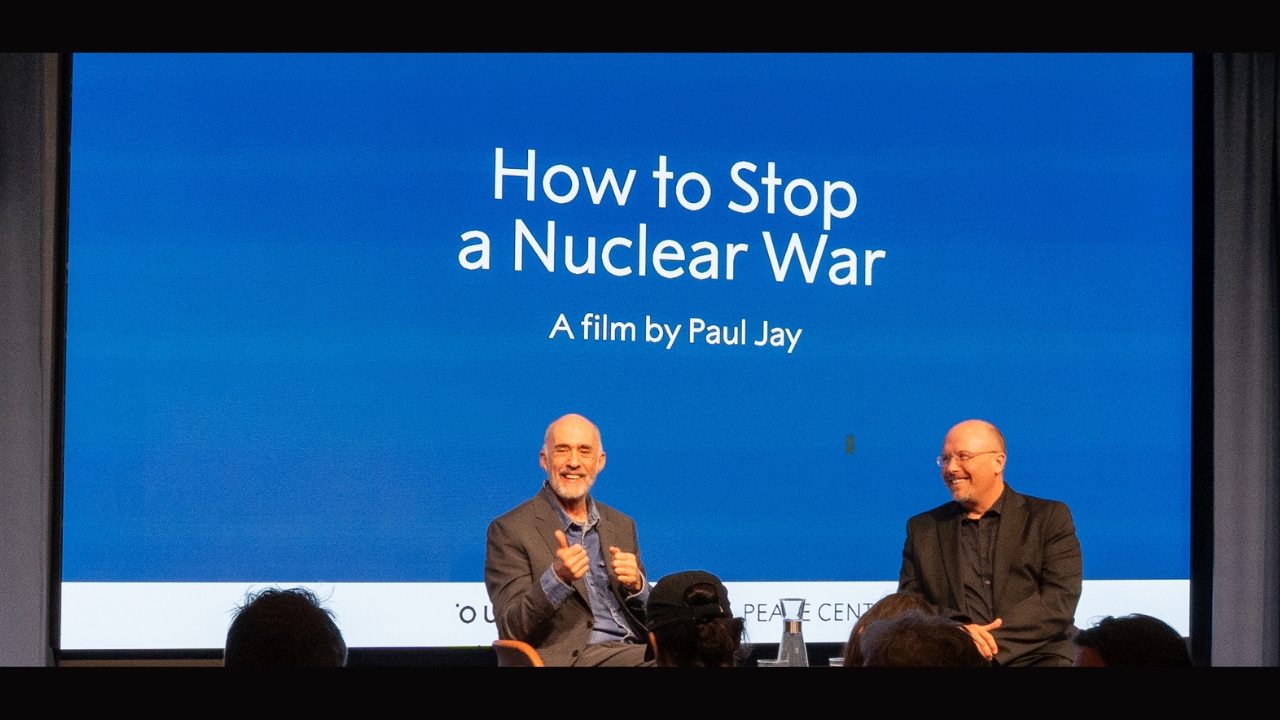

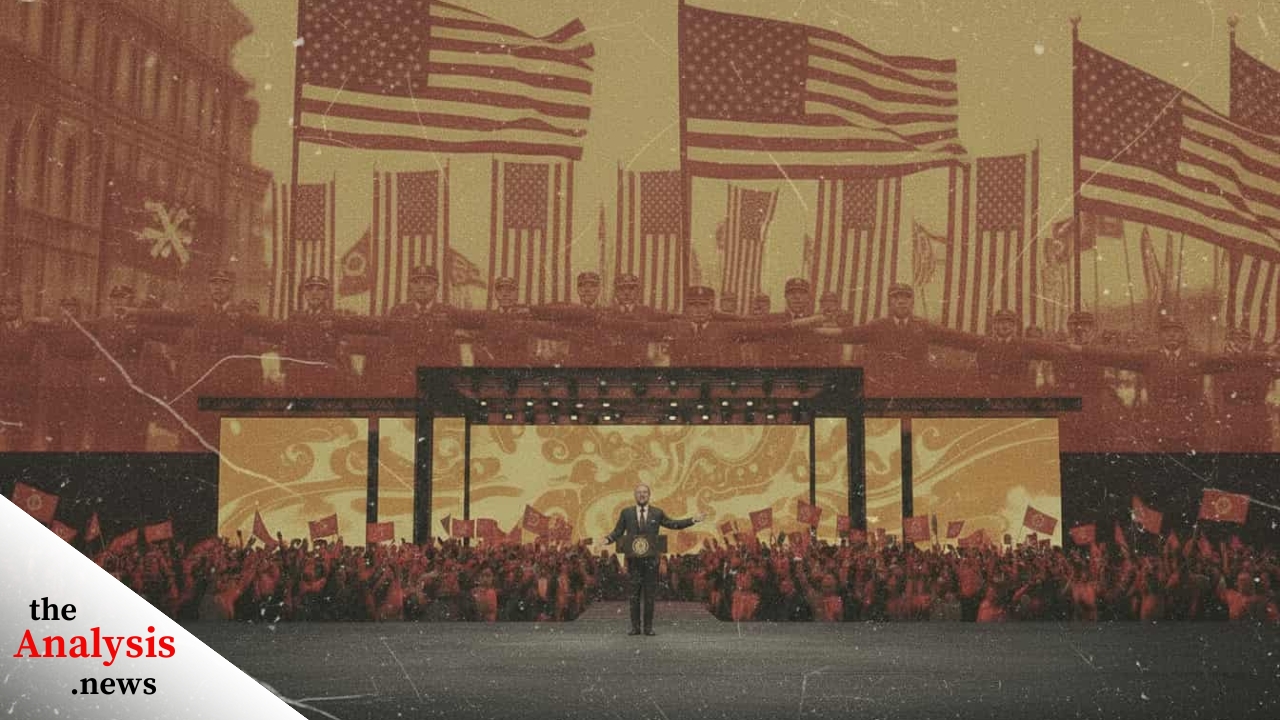
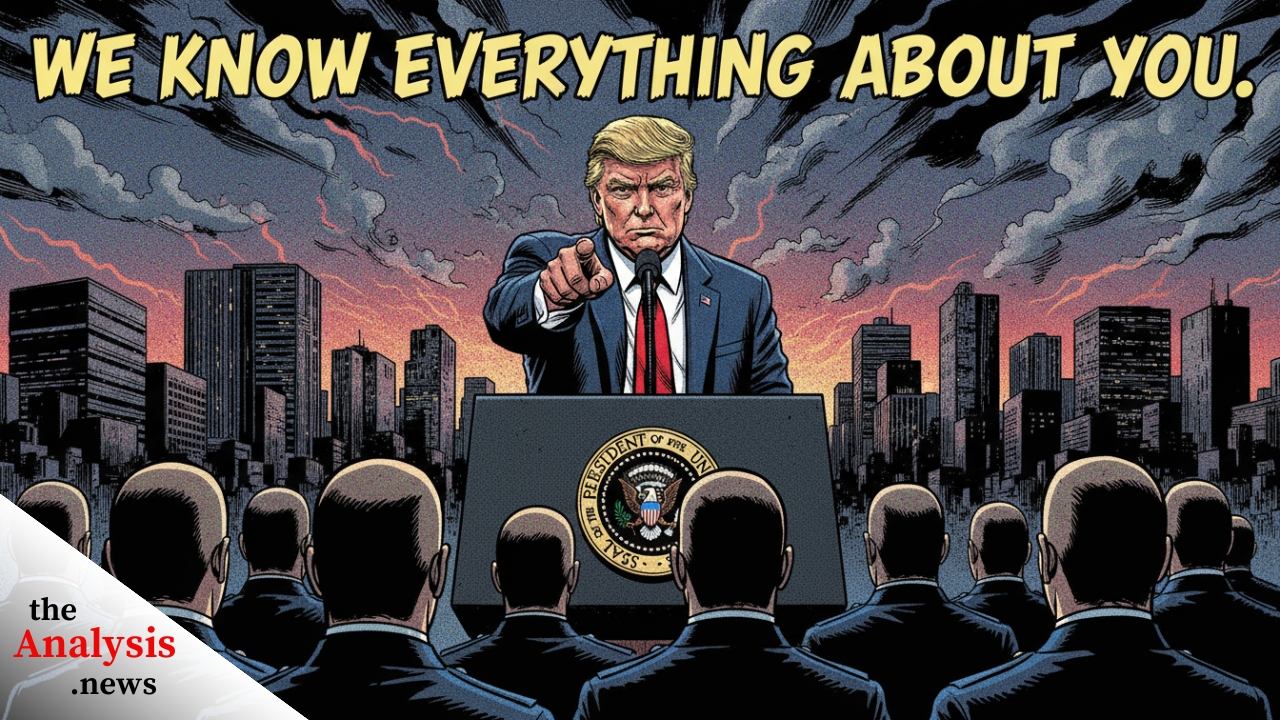
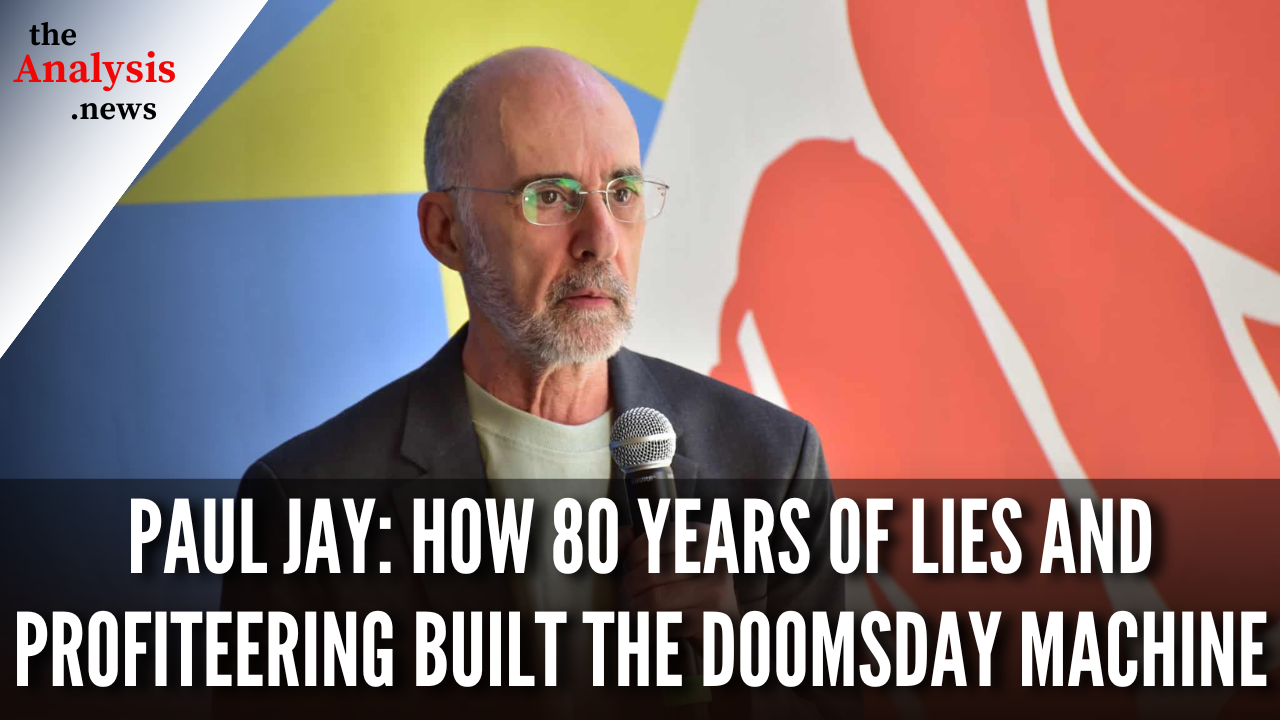
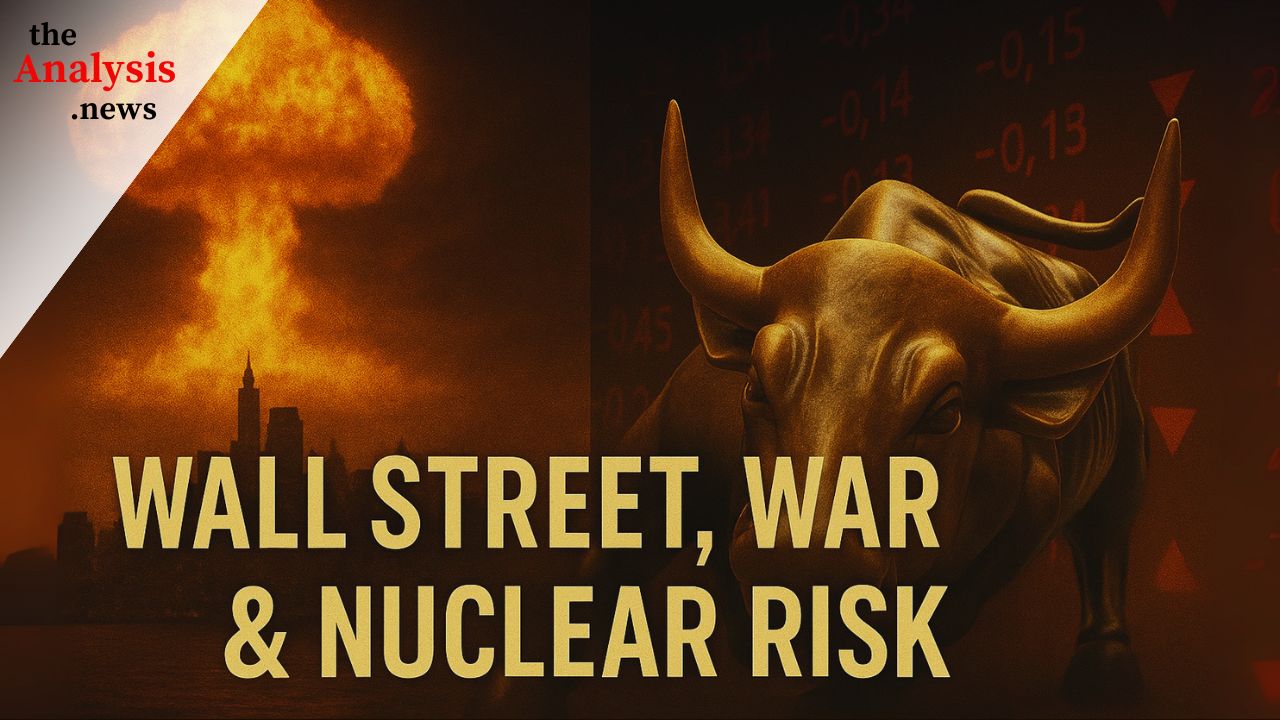
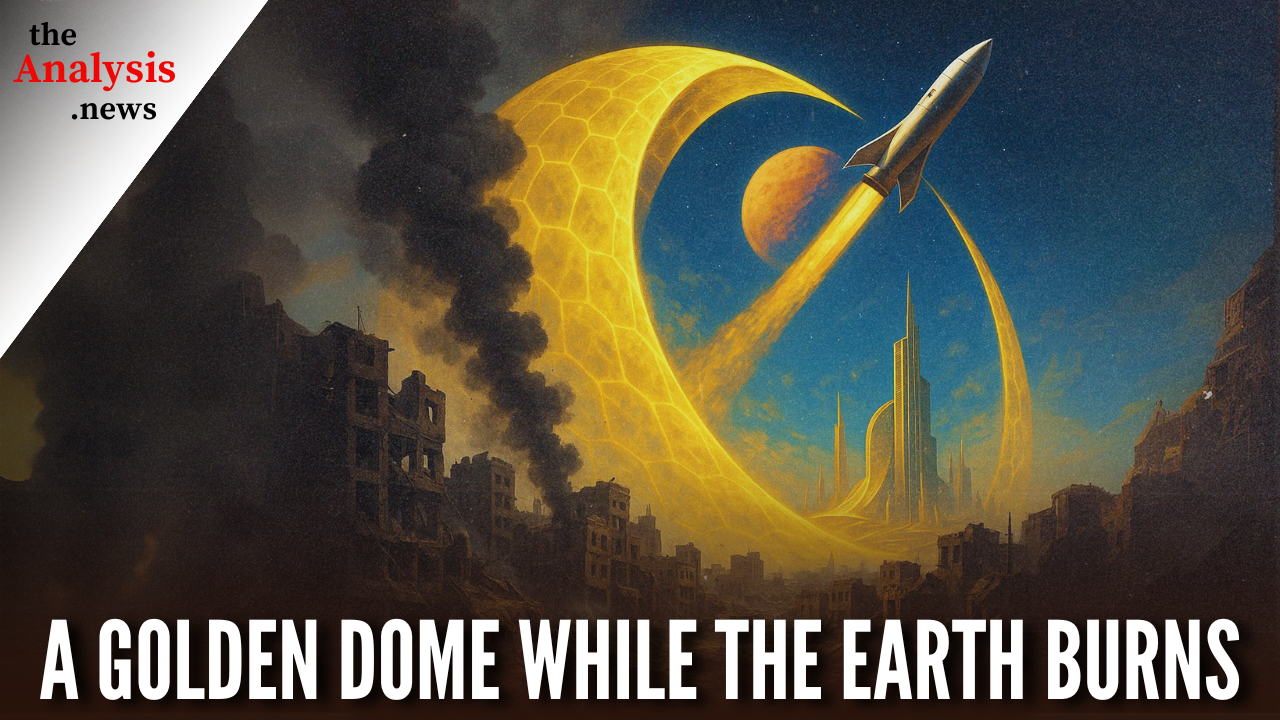
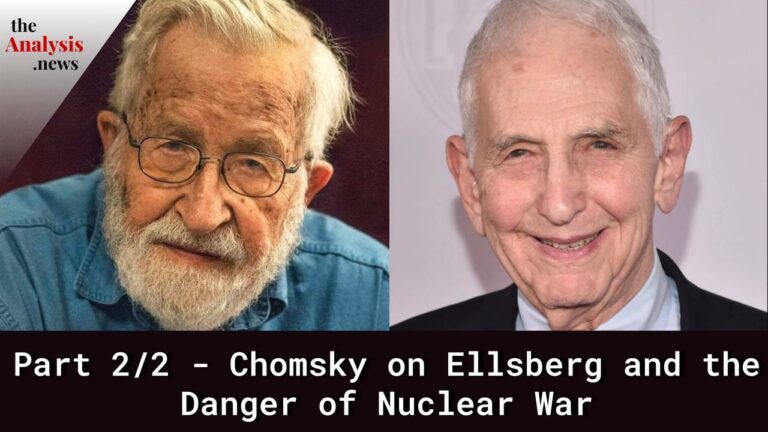
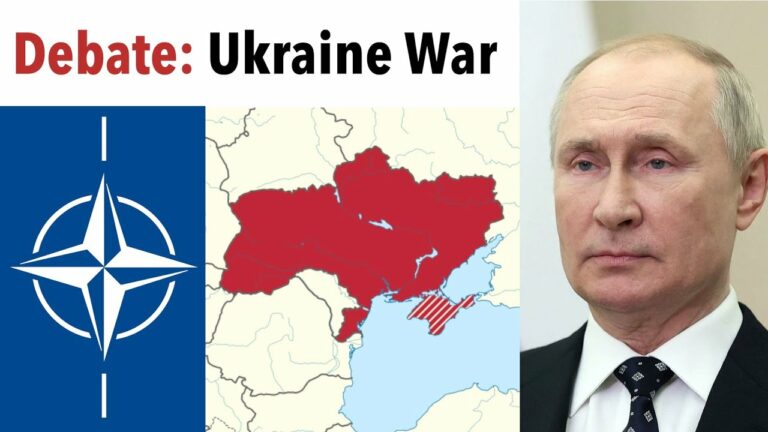
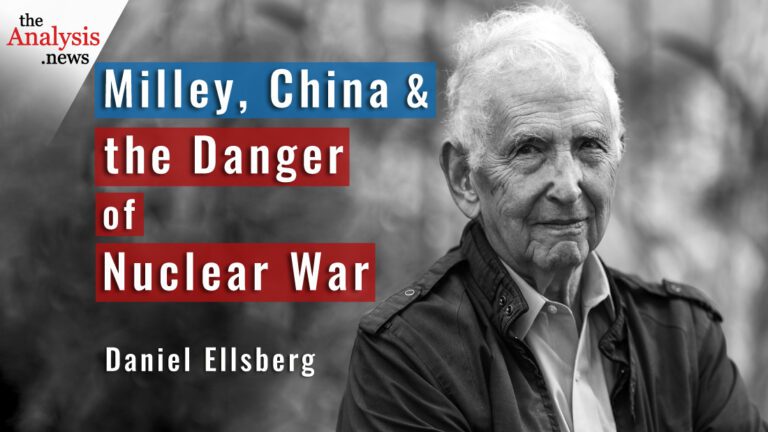
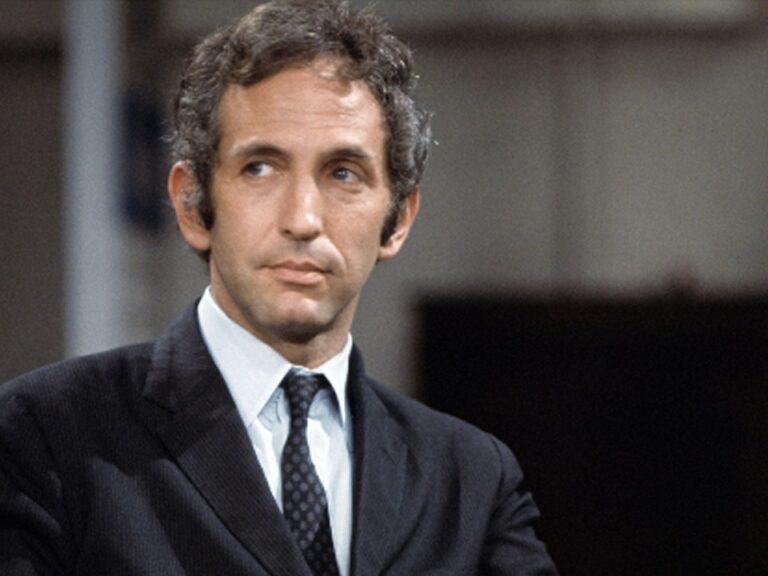

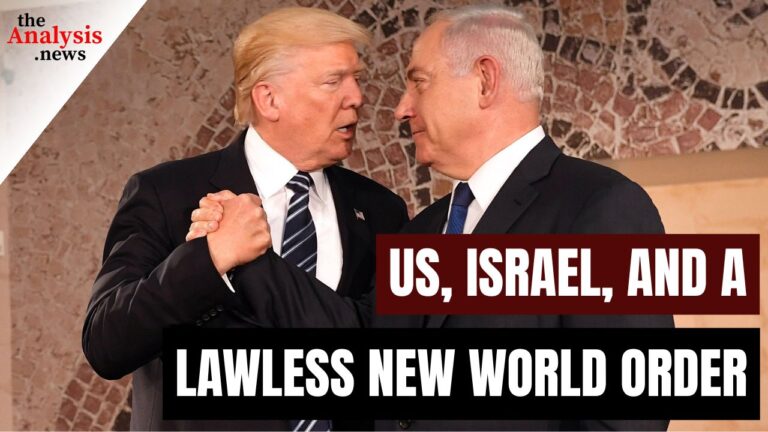
OK but I’m glad you let it out for 1 day. The trailer promised an extraordinary film, and your 1 hour talk after the trailer is also very timely and revealing. One little thing about Ukraine and Ellsberg — I wonder if he heard Jeffrey Sachs (and Ray McGovern) discuss the history that the war started in 2014, with the invasion being an acceleration of it. During Trump’s first impeachment Adam Schiff said Trump’s holdup of military funds for Ukraine was important because “we are fighting the Russians in Ukraine so we don’t have to fight them here.” It was an explicit statement (long before the Russian invasion) that proxy war was already ongoing. Sachs also says the purpose of the invasion was to get Ukraine to the bargaining table, which it did. A peace agreement was ready for signing but the U.S. sent Boris Johnson in April 2022 to demand Zelensky not sign it. The war was too important to be stopped. “And so it goes.” – K. Vonnegut
What happened to the movie trailer?
Not for publication yet
Sorry
P